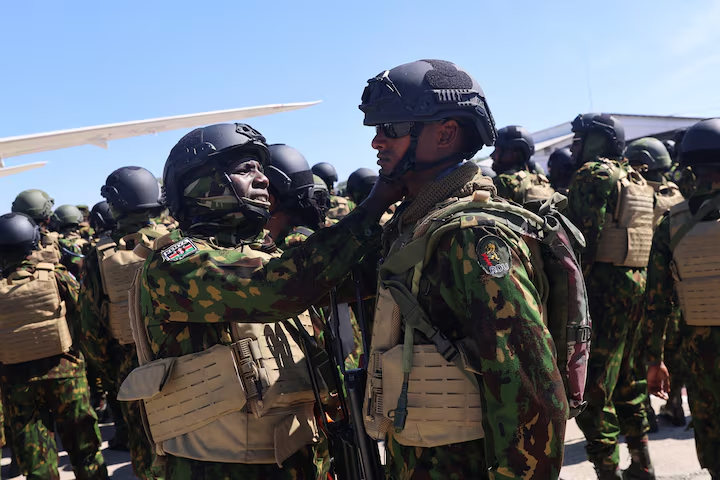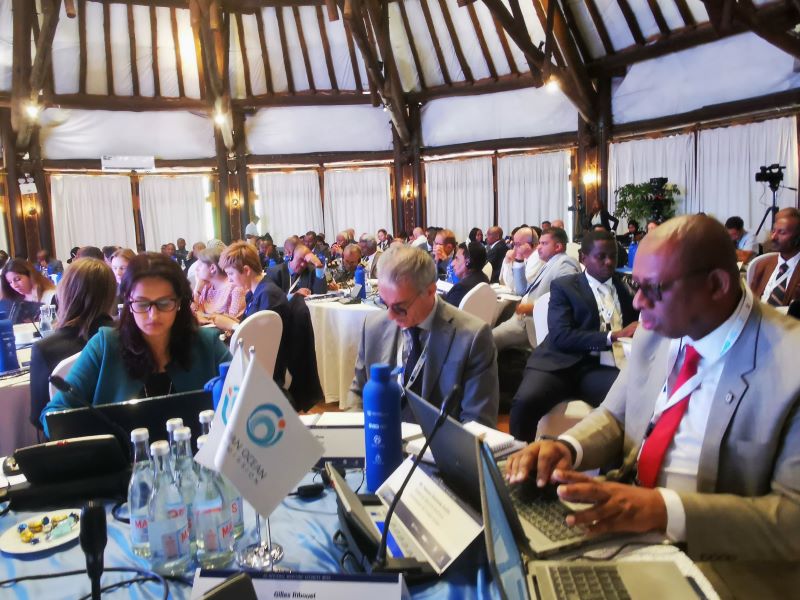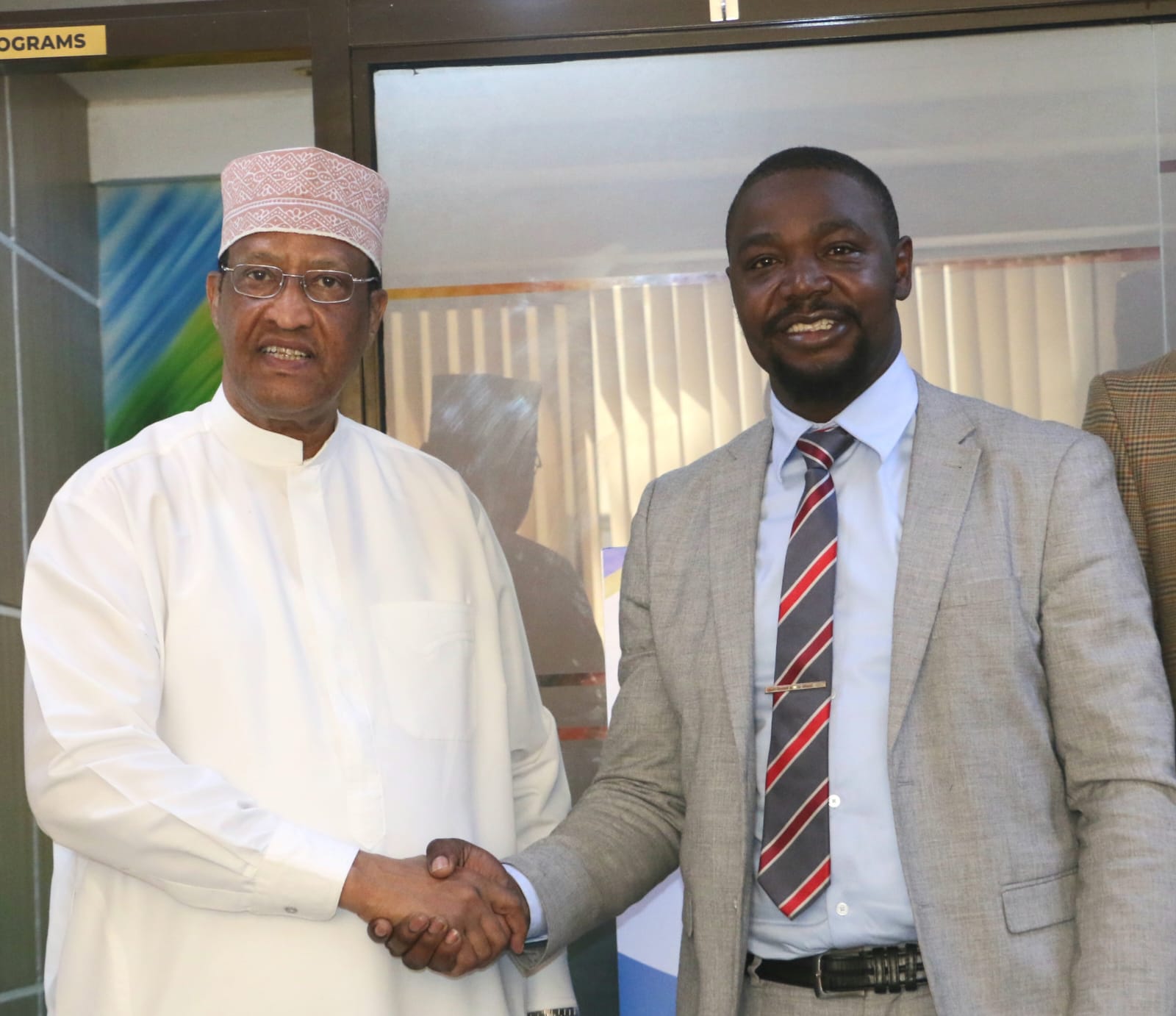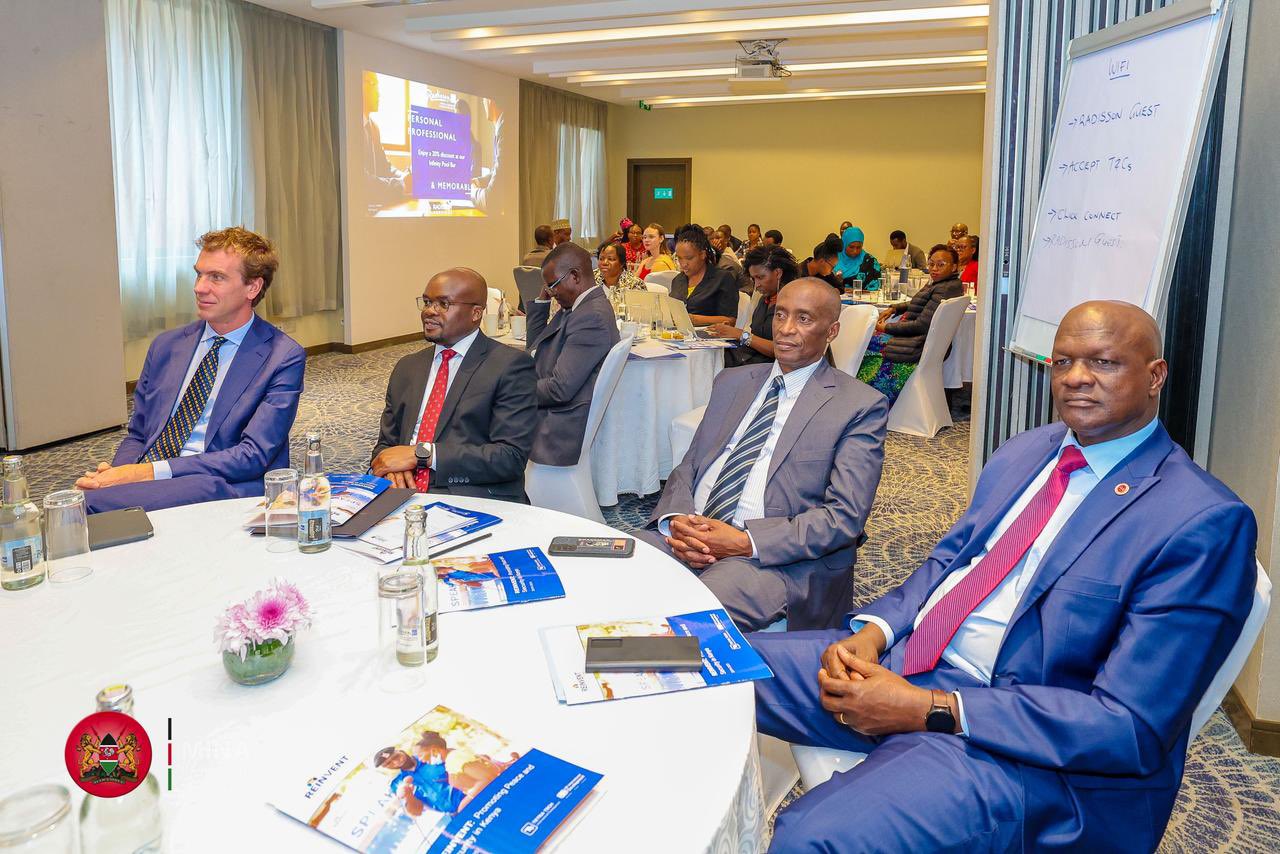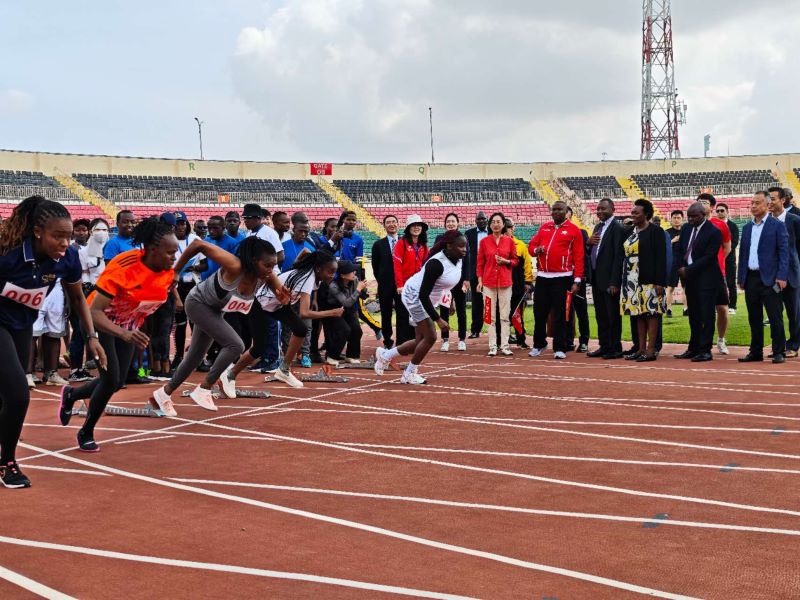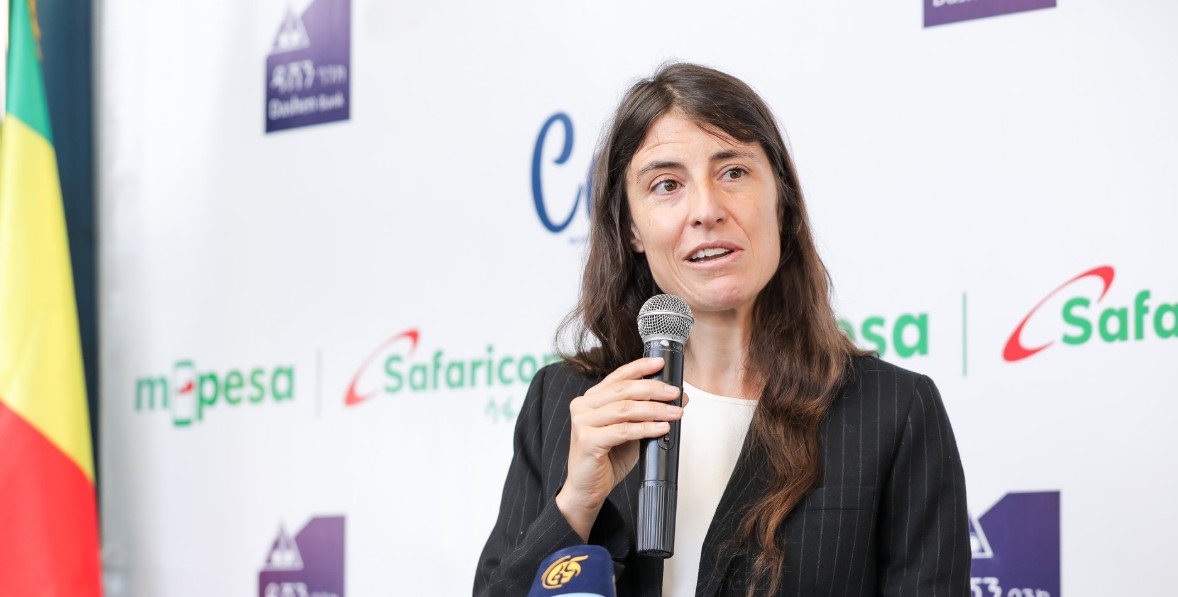IPOA launches ambitious strategic plan to transform policing in Kenya
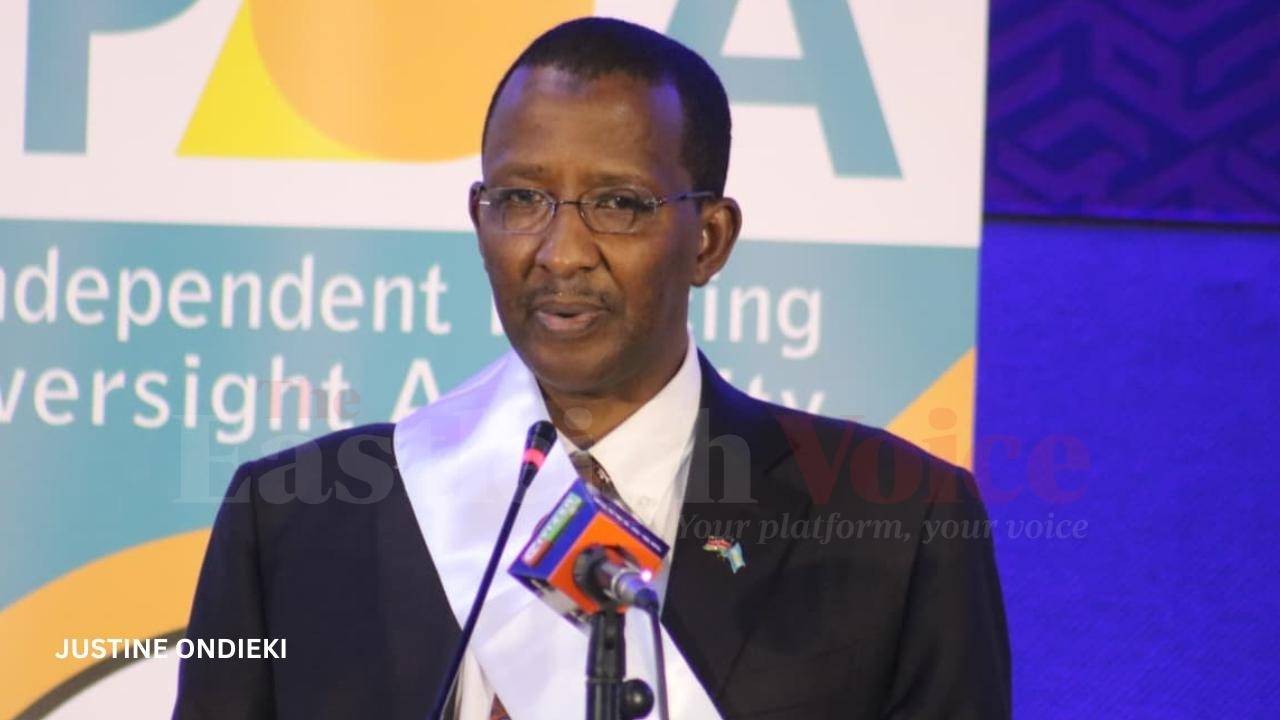
Chief Justice Martha Koome said the plan is a reaffirmation of the country's constitutional journey that was embarked on in 2010, to entrench accountability and safeguard human rights.
The Independent Policing Oversight Authority (IPOA) has today, September 17, launched an ambitious Sh13 billion strategic plan which seeks to strengthen policing oversight in the country.
Chief Justice Martha Koome said the plan is a reaffirmation of the country's constitutional journey that was embarked on in 2010, to entrench accountability and safeguard human rights.
More To Read
- IG reshuffles top police ranks as six senior officers moved
- IEBC blames police officers for by-election violence, maintains poll largely successful
- Seven arrested over Kariobangi North church chaos as police pursue more suspects
- Wajir police nab suspect with AK-47 rifle in ongoing crackdown on illegal firearms
- 16 arrested over attack on Peter Kaluma during Kasipul by-election
- Police assure Kenyans of security ahead of Thursday’s by-elections
According to Koome, justice begins at the very first point of contact between citizens and the police.
"If that encounter is abusive or unlawful, Justice is already compromised. IPOA exists to safeguard justice at the very first point of contact. By conducting independent and impartial investigations, inspections, audits and monitoring, IPOA ensures that policing remains professional, accountable and rights-based," said Koome.
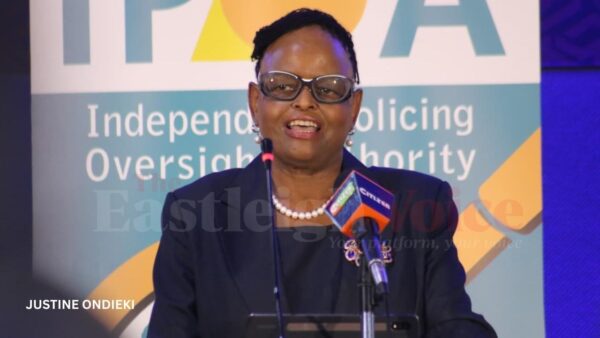 Chief Justice Martha Koome addresses stakeholders during the launch of IPOA Strategic Plan 2025–2030 at the KICC, Nairobi, on September 17, 2025. (Photo: Justine Ondieki).
Chief Justice Martha Koome addresses stakeholders during the launch of IPOA Strategic Plan 2025–2030 at the KICC, Nairobi, on September 17, 2025. (Photo: Justine Ondieki).
During the development of the plan, IPOA identified critical and strategic issues that it seeks to address in the next five years.
They include cases of non-professionalism within the National Police Service (NPS), low adherence to human rights and the rule of law, low public trust in IPOA as well as the NPS, limited knowledge management on policing oversight and limited strategic partnerships, among others.
Acting British High Commissioner to Kenya, Ed Burnett, noted that the plan aligns with the new UK-Kenya strategic partnership signed in July by both President William Ruto and former Prime Minister Keir Starmer.
"The United Kingdom stands alongside Kenya in its journey to strengthen democratic governance, uphold human rights and uphold the rule of law. Police accountability is not merely a technical issue; it's a cornerstone of democratic societies. It ensures that law enforcement serves the people with integrity, transparency and respect for human dignity," he said.
On her part, Maureen Mimnaugh, the Director, International Narcotics and Law Enforcement at the US Embassy in Nairobi, said collaborative work is essential to the success of the IPOA mandate.
"We look forward to watching IPOA leverage this strategic plan to ensure that Kenyan law enforcement agencies are upheld to the highest standards of professionalism and protection of human rights in the next five years," said Mimnaugh.
IPOA Chairperson Ahmed Issack Hassan said the Exchequer will fund Sh7.33 billion of the total cost of implementing the plan, leaving a financing gap of Sh5.85billion, 44 per cent of the requirement.
"To bridge this gap, we will continue to lobby parliament and the Treasury tollgate for funding while actively engaging development partners on resource mobilisation," he explained.
The plan is also expected to address the notable clash of human rights and upholding policing standards during protests.
"Many times when we talk about police accountability, we look at it from a human rights angle, and that is correct; however, it goes beyond that. At the premises of any meaningful human development is an efficient policing system, and for us to have an efficient policing system, we must also have an efficient oversight system," the International Justice Mission (Kenya) Director, Vincent Chahale, urged.
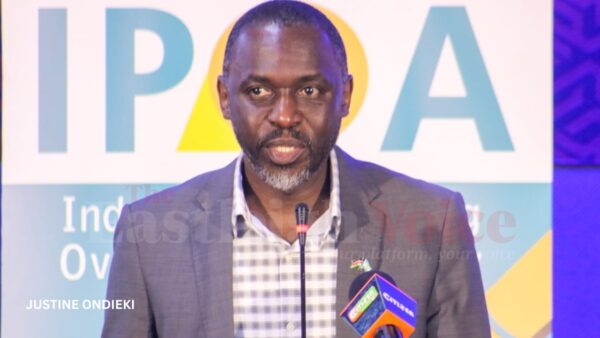 International Justice Mission (Kenya) Director, Vincent Chahale, addresses stakeholders during the launch of the IPOA Strategic Plan 2025–2030 at KICC, Nairobi, on September 17, 2025. (Photo: Justine Ondieki)
International Justice Mission (Kenya) Director, Vincent Chahale, addresses stakeholders during the launch of the IPOA Strategic Plan 2025–2030 at KICC, Nairobi, on September 17, 2025. (Photo: Justine Ondieki)
The six-year plan that is informed by views collected across the country will notably guide the authority during the upcoming general elections.
"This strategic plan comes at the end of one of the deadliest seasons of violent policing that the country has seen from as back as the 1950s during the state of emergency. I do not wish to be dramatic, but I think 115 killed protesters and over 43 on Saba Saba day gives us a moment for reflection, not just those of us in the human rights community but also for state agencies and in particular, the National Police Service," said Hourghton Irungu, the Executive Director, Amnesty International.
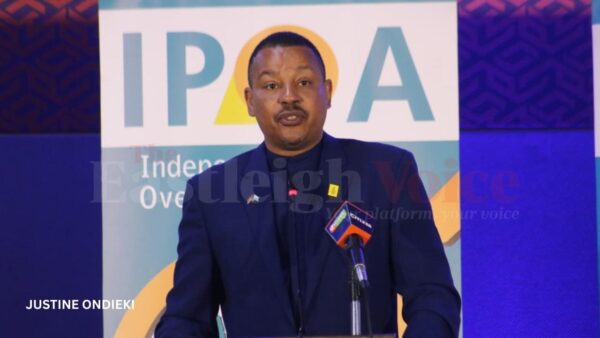 Amnesty International Executive Director, Hourghton Irungu, addresses stakeholders during the launch of the IPOA Strategic Plan 2025–2030 at KICC, Nairobi, on September 17, 2025. (Photo: Justine Ondieki)
Amnesty International Executive Director, Hourghton Irungu, addresses stakeholders during the launch of the IPOA Strategic Plan 2025–2030 at KICC, Nairobi, on September 17, 2025. (Photo: Justine Ondieki)
At least 40 police officers have been convicted following investigations carried out by the authority since its inception.
The authority notes that some of its pressing challenges include: a limited workforce, having just about 77 investigators across the country out of the required capacity of 400.
At the same time, the commission has been struggling with non-cooperation by police officers, some of the victims' families and limited public trust, as it's mostly accused of not doing enough to hold rogue officers accountable and taking too long to probe and prosecute police complaints filed with them.
In a bid to recognise the officers doing great work for the public, the Authority said it will launch an outstanding police officers award.
The IG representative, Charles Otieno, said the plan aligns with the NPS's plan to enhance professionalism in the sector by, among others, upholding human rights.
Top Stories Today

